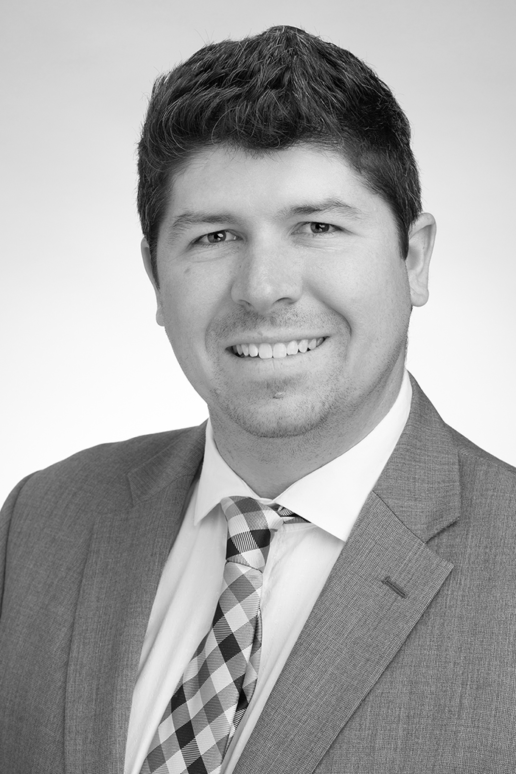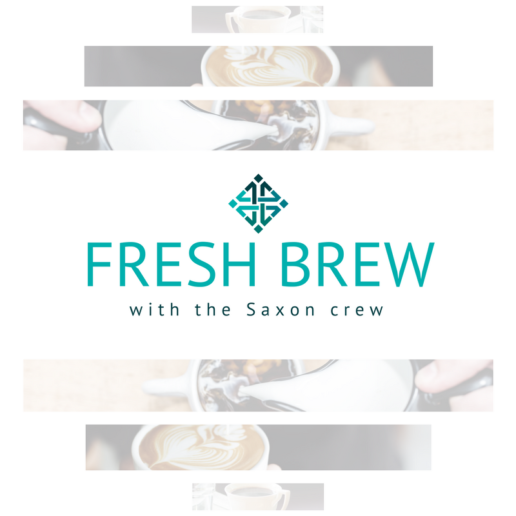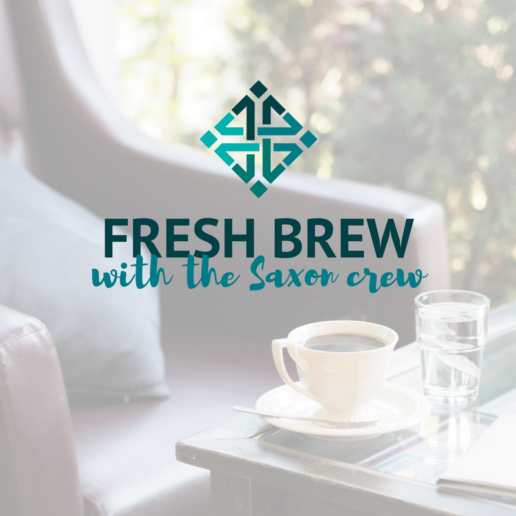The Saxon Advisor - April 2020
Compliance Check
Easy to Digest, Monthly Need-to-Knows
The Current 30
APRIL 1: Required Minimum Distribution. Deadline to take first RMD for terminated participants following attainment of age 70 1/2 or retiring after 70 1/2 in prior calendar year.
APRIL 1: Form 1099-R. Deadline for employers to file electronically with the IRS.
APRIL 15: Excess Contribution Refunds (Over IRS Limit). Deadline to return excess retirement plan deferrals for the previous plan year.
APRIL 30: Annual Audit Time! For large 5500 filers, it is time to select an auditor and schedule your annual audit.
A Look Forward
MAY 15: Participant-Directed Plans. Benefit Statements for participant-directed plans and Participant Fee Disclosures are due.
JUNE 30: Eligible Automatic Contribution Arrangement (EACA). Corrective distributions for failed ADP/ACP tests must be made within 6 months after the Plan Year end.
JULY 31: Form 5500 and Form 5558. The deadline for the 2019 plan year’s Form 5500 and Form 5558 (5500 filing extension to October 15th).
JULY 31: Form 8955-SSA. Deadline to file Form 8955-SSA and the terminated vested participant statements for the plan year of 2019 (unless extended by Form 5558).
JULY 31: Form 5330. Deadline to file for excise tax on failed ADP/ACP test.
In this Issue
- It’s Annual Audit Time! For large 5500 filers, it is time to select an auditor and schedule your annual audit April 30, 2020.
- Benefit Statements for participant-directed plans and Participant Fee Disclosures are due May 15, 2020.
- Fresh Brew Featuring Olivia Childs
- This month’s Saxon U: How To Legally Work With Gig And Contract Workers
- #CommunityStrong: Donation Drive for Families Forward
How to Legally Work With Gig and Contract Workers
Join our May Saxon University as Pandy Pridemore discusses how to legally work with Gig and Contract Workers
What You Need to Know: The SECURE Act
Bringing the knowledge of our in-house advisors right to you...
In December of 2019, President Donald Trump passed the Setting Every Community Up for Retirement Enhancement Act or SECURE Act. Some of the Act aims at making it easier for small business owners to create more affordable and easier to administer retirement plans.
“There is a lot of hype in the government and media about how the SECURE Act will make it cheaper to sponsor a plan. I don’t know if recordkeepers could lower their annual costs any more than they have over the last 8 or 9 years; but it definitely will provide lower start-up costs through the tax credits, and make it easier to administer plans if utilizing a Safe Harbor approach or a PEP.”
Fresh Brew Featuring Olivia Childs
"Be sure to do the follow-up after a conversation!"
Olivia Childs is a Saxon Senior Solutions Specialist whose favorite catchphrase is, “We rise by lifting others,” by Eleanor Roosevelt. We invite you take a moment to get to know Olivia!
Olivia’s favorite brew is Chai Tea Latte. She admits that enjoying her drink while relaxing at Half Day Cafe and snacking on an Everything Bagel is hard to beat!
This Month's #CommunityStrong:
Donation Drive for Families Forward
It's time to work together to help meet a top priority need of a valued community program and the families they serve.
Are you taking a strategic approach to your financial big picture?
Saxon creates innovative strategies that will help you figure out how to get there, plan for the risks along the way, navigate complex tax code and understand the steps you need to take to protect and secure your future.
Monthly compliance alerts, educational articles and events
- courtesy of Saxon Financial Advisors.

The Saxon Advisor - March 2020
Compliance Check
what you need to know
Section 6055/6056 Reporting (Electronic Filing Deadline). Applicable large employers (ALEs) that sponsor self-insured health plans are required by Internal Revenue Code Sections 6055 and 6056 to report information about the coverage to the IRS yearly. IRS Forms 1094-C and 1095-C are used to report coverage information. March 31, 2020, is the deadline to submit these forms if employers are filing electronically.
COBRA General Notice. Employers who provide group health plans must provide a written General Notice of COBRA rights to all covered employees and spouses (if applicable). This notice must be provided 90 days after health plan coverage begins.
Summary Plan Description (SPD). Employers who offer group health plans that are subject to ERISA must provide Summary Plan Descriptions (SPD) to employees who newly enrolled at the beginning of the plan year by March 31, 2020.
Form 1099-R (Electronic Filing Deadline). Employers must file Form 1099-R with the IRS by March 31, 2020, if they are filed electronically.
Form 5330 Excise Tax Return. The Form 5330 excise tax return and payment for excess 2018 ADP/ACP contributions are due March 31, 2020.
Excess Contribution Refunds (over IRS limit). April 15, 2020 is the deadline to return excess retirement plan contributions for elective deferrals exceeding the 402(g) limits.
In this Issue
- Upcoming Compliance Deadlines
- Paving the Road to a Successful Portfolio Featuring Brian Bushman
- Upcoming Saxon U Webinar: Employee Navigator Workshop with Jake Meyer
- Fresh Brew Featuring Jake Meyer
- #CommunityStrong: American Heart Association Heart Mini Fundraising & School Donation Drive
Employee Navigator Workshop
Join us for this interactive and educational Saxon U webinar with Jake Meyer, Saxon Financial Services, as we walk you through certain aspects of Navigator and teach you how to use the most common features.
Paving the Road to a Successful Portfolio
Bringing the knowledge of our in-house advisors right to you...
Determining a proper asset allocation is an important first step in creating your portfolio and planning how it will grow in the future. Asset allocation is the process of diversifying your investments into different asset classes based on the investor’s time horizon, their goals and how much risk they can tolerate.
“People always ask me what they can invest in that will make them a lot of money without the chance of losing any,” said Brian Bushman, Saxon Financial Advisor.
Fresh Brew Featuring Jake Meyer
“Educate your employees about their benefits. The more they understand them, the more they will realize how big of a benefit they are.”
This month’s Fresh Brew features Jake Meyer, an Account Executive at Saxon.
Scott’s favorite brew is Rhinegeist Truth, a local Indian Pale Ale from the Rhinegeist Brewery in Cincinnati, Ohio.
Jake doesn’t have a particular snack that he eats when sipping on his favorite brew. He instead likes to enjoy the hops in his favorite IPA.
This Month's #CommunityStrong:
American Heart Association Heart Mini Fundraising
This March, the Saxon team and their families teamed up to raise money for the American Heart Association Heart Mini!
Do you have a strategic approach to the totality of your financial picture?
Saxon creates innovative strategies that will help you figure out how to get there, plan for the risks along the way, navigate complex tax code and understand the steps you need to take to protect and secure your future.
Monthly compliance alerts, educational articles and events
- courtesy of Saxon Financial Advisors.

Fresh Brew With Jake Meyer
Welcome to our monthly segment, Fresh Brew, where we will be exploring the delicious coffees, teas, and snacks of some of our employees! You can look forward to our Fresh Brew blog post on the first Friday of every month.
“Educate your employees about their benefits. The more they understand them, the more they will realize how big of a benefit they are.”
Jake Meyer is an Account Executive at Saxon Financial Services
Jake Meyer joined the Account Management team in December 2015 after previously working in operations for the Cincinnati Reds. He holds a B.A. Cum Laude in English Writing and Political Science, from the University of Pittsburgh.
Outside of the office, Jake enjoys spending time with his family and friends. He is an avid sports fan, and likes to attend sporting events as often as possible.


Rhinegeist Truth
Jake enjoys drinking Rhinegeist Truth which is a local Indian Pale Ale from the Rhinegeist Brewery in Cincinnati, Ohio.

Jake doesn’t have a particular favorite snack that he eats when sipping on his favorite brew. He instead likes to enjoy the hops in his favorite IPA.
The Saxon Advisor - February 2020
Compliance Check
what you need to know
Section 6055/6056 Reporting. Employers must file Forms 1094-B and 1095-B, and Forms 1094-C and 1095-C with the IRS by February 28, 2020 if they are filed on paper.
Form 1099-R Paper Filing. Employers must file Form 1099-R with the IRS by February 28, 2020 if they are filed on paper.
CMS Medicare Part D Disclosure. Employers that provide prescription drug coverage must disclose to the CMS whether the plan’s prescription drug coverage is creditable or non-creditable.
Summary of Material Modifications Distribution. Employers who offer a group health plan that is subject to ERISA must distribute a SMM for plan changes that were adopted at the beginning of the year that are material reductions in plan benefits or services.
Section 6055/6056 Individual Statements (2019 EXTENDED DEADLINE). Applicable large employers (ALEs) that sponsor self-insured health plans must disclose information about plan coverage to covered employees each year. This deadline was extended from January 31, 2020, to March 2, 2020, this year by the IRS.
ADP/ACP Refunds. Corrective refunds for a failed ADP/ACP test must be made by March 15, 2020, to avoid 10 percent excise tax penalties.
Section 6055/6056 Reporting (Electronic Filing Deadline). Applicable large employers (ALEs) that sponsor self-insured health plans are required by Internal Revenue Code Sections 6055 and 6056 to report information about the coverage to the IRS yearly. IRS Forms 1094-C and 1095-C are used to report coverage information. March 31, 2020, is the deadline to submit these forms if employers are filing electronically.
COBRA General Notice. Employers who provide group health plans must provide a written General Notice of COBRA rights to all covered employees and spouses (if applicable). This notice must be provided 90 days after health plan coverage begins.
Summary Plan Description (SPD). Employers who offer group health plans that are subject to ERISA must provide Summary Plan Descriptions (SPD) to employees who newly enrolled at the beginning of the plan year.
Form 1099-R (Electronic Filing Deadline). Employers must file Form 1099-R with the IRS by March 31, 2020, if they are filed electronically.
Form 5330. The Form 5330 excise tax return and payment for excess 2018 ADP/ACP contributions are due March 31, 2020.
In this Issue
- Upcoming Compliance Deadlines
- How to Speak to Your Employees About Their Intimidating Benefits – Featuring Jamie Charlton
- Fresh Brew Featuring Nat Gustafson
- This month’s Saxon U: What Employers Should Know About the SECURE Act
- March’s Saxon U: Saxon’s Humana GO365 Annual Wellness Clinic
- #CommunityStrong: American Heart Association Heart Mini Fundraising
What Employers Should Know About the SECURE Act
Join us for this interactive and educational Saxon U seminar with Todd Yawit, Director of Employer-Sponsored Retirement Plans at Saxon Financial Services, as we discuss what the SECURE Act is and how it impacts your employer-sponsored retirement plan.
How to Speak to Your Employees About Their Intimidating Benefits
Bringing the knowledge of our in-house advisors right to you...
Employers spend thousands annually to secure and offer benefits to their employees. However, a small amount of time and money are devoted to ensuring employees understand and appreciate their benefits. Properly communicating – what you say, how you say it and to whom you say it to – can make a tremendous difference in how employees think, feel and react to their benefits, employer and fellow co-workers.
In this installment of CenterStage, Jamie Charlton, founding partner and CEO of Saxon Financial Services, discusses the importance of offering sound education of benefits to employees, as well as how to effectively communicate their benefits in a clear, concise manner.
Fresh Brew Featuring Nat Gustafson
“Always be prepared.”
This month’s Fresh Brew features Nat Gustafson, an Account Manager at Saxon.
In his free time, Nat enjoys snowboarding. When thinking about his greatest adventure, he remembers traveling around Italy. He lives by the catchphrase of, “Roll up your sleeves.”
Nat’s favorite brew is Rhinegeist Truth. His favorite local spot to grab his favorite brew is Mount Lookout Tavern on Linwood Avenue.
Nat’s favorite snack to enjoy with his brew is Chicken wings.
This Month's #CommunityStrong:
American Heart Association Heart Mini Fundraising
This January, February & March, the Saxon team and their families will be teaming up to raise money for the American Heart Association Heart Mini!
Saxon’s Humana GO365 Annual Wellness Clinic
Learn what Go365 is, how it works, how to create engaged employees and how to maximize the 15% wellness incentive credit from the program.
Monthly compliance alerts, educational articles and events
- courtesy of Saxon Financial Advisors.

Fresh Brew with Nat Gustafson
Welcome to our monthly segment, Fresh Brew, where we will be exploring the delicious coffees, teas, and snacks of some of our employees! You can look forward to our Fresh Brew blog post on the first Friday of every month.
“Always be prepared.”
Nat Gustafson is an Account Manager at Saxon Financial.
Nat began his career at Total Quality Logistics. For four months, he learned to control himself in hectic situations and to better manage his time. Most importantly, he taught himself how to effectively communicate with others in difficult situations.
In his free time, Nat enjoys snowboarding. When thinking about his greatest adventure, he remembers traveling around Italy. He lives by the catchphrase of, “Roll up your sleeves.”


Rhinegeist Truth
Nat enjoys a Rhinegeist Truth, an indian pale ale, from his favorite local spot, Mount Lookout Tavern on Linwood Avenue.

Chicken Wings
Nat enjoys sipping on his favorite brew while eating chicken wings from Mount Lookout Tavern.
The Saxon Advisor - January 2020
Compliance Check
what you need to know
Form W-2s are due January 31, 2020. January 31 is the deadline for employers to distribute Form W-2s to employees. Large employers – employers who have more than 250 W-2s – must include the aggregate cost of health coverage.
Form 1099-Rs are due January 31, 2020. Employers must distribute Form 1099-Rs to recipients of 2019 distributions.
Form 945 Distributions. Form 945s must be distributed to plan participants by January 31, 2020, for 2019 non payroll withholding of deposits if they were not made on time and in full to pay all taxes that are due.
Section 6055/6056 Reporting. Employers must file Forms 1094-B and 1095-B, and Forms 1094-C and 1095-C with the IRS by February 28, 2020 if they are filed on paper.
Form 1099-R Paper Filing. Employers must file Form 1099-R with the IRS by February 28, 2020 if they are filed on paper.
CMS Medicare Part D Disclosure. Employers that provide prescription drug coverage must disclose to the CMS whether the plan’s prescription drug coverage is creditable or non-creditable.
Summary of Material Modifications Distribution. Employers who offer a group health plan that is subject to ERISA must distribute a SMM for plan changes that were adopted at the beginning of the year that are material reductions in plan benefits or services
In this Issue
- Upcoming Compliance Deadlines
- Traditional IRA, Roth IRA, 401(k), 403(b): What’s the Difference?
- Fresh Brew Featuring Scott Langhorne
- This month’s Saxon U: What Employers Should Know About the SECURE Act
- #CommunityStrong: American Heart Association Heart Mini Fundraising
What Employers Should Know About the SECURE Act
Join us for this interactive and educational Saxon U seminar with Todd Yawit, Director of Employer-Sponsored Retirement Plans at Saxon Financial Services, as we discuss what the SECURE Act is and how it impacts your employer-sponsored retirement plan.
Traditional IRA, Roth IRA, 401(k), 403(b): What's the Difference?
Bringing the knowledge of our in-house advisors right to you...
If you haven’t begun saving for retirement yet, don’t be discouraged. Whether you begin through an employer sponsored plan like a 401(k) or 403(b) or you begin a Traditional or Roth IRA that will allow you to grow earnings from investments through tax deferral, it is never too late or too early to begin planning.
“A major trend we see is that if people don’t have an advisor to meet with, they tend to invest too conservatively, because they are afraid of making a mistake,” said Kevin Hagerty, a Financial Advisor at Saxon Financial.
Fresh Brew Featuring Scott Langhorne
“Pay close attention to detail.”
This month’s Fresh Brew features Scott Langhorne, an Account Manager at Saxon.
Scott’s favorite brew is Bud Light. His favorite local spot to grab his favorite brew is wherever his friends and family are.
Scott’s favorite snack to enjoy with his brew is wings.
This Month's #CommunityStrong:
American Heart Association Heart Mini Fundraising
This January, February & March, the Saxon team and their families will be teaming up to raise money for the American Heart Association Heart Mini! They will be hosting a Happy Hour at Fretboard Brewing Company Wednesday, January 29, from 4 p.m. - 7 p.m. to raise money.
Are you prepared for retirement?
Saxon creates strategies that are built around you and your vision for the future. The key is to take the first step of reaching out to a professional and then let us guide you along the path to a confident future.
Monthly compliance alerts, educational articles and events
- courtesy of Saxon Financial Advisors.

Fresh Brew with Scott Langhorne
Welcome to Fresh Brew, where we explore the delicious coffees, teas, and snacks of some of our employees! You can look forward to our Fresh Brew blog post on the first Friday of every month.
“Pay close attention to detail.”
Scott Langhorne is an Account Manager at Saxon.
Scott joined the team at Saxon Financial Services after working in customer service. His favorite catchphrase, a quote from the movie Friday Night Lights, is, “Clear eyes, full heart, can’t lose.”
Scott enjoys helping out his family and friends with any projects they need doing. He also enjoys traveling with his wife. His most memorable trip was when they traveled to Switzerland and Portugal.
In his free time, Scott enjoys playing golf during the warmer months. He also enjoys spending time with his wife and their dog, Bosley.


Bud Light
Scott enjoys drinking Bud Light. His favorite local spot to grab is favorite brew is wherever friends and family are.

Wings
Scott’s favorite snack to accompany his favorite brew are wings.
4 End-of-Life Documents and Why You Need Them?
While the majority of people would prefer not to think about the end of life, it is important to discuss the need for and understanding of end-of-life planning documents. What are these documents and why do you need them? Read this blog post to learn more.
Most of us aren’t keen to think about the end of life–especially our own. But discussing the need for and understanding end-of-life planning documents is important for all of us. So, what are these documents and why do you need them? Here’s a summary:
1: Durable power of attorney. This appoints another person to transact business, legal and financial matters for you until you die.
Why do you need it? Let's say you are incapacitated by an accident or illness, it allows the person you’ve chosen to act for you—and quickly. That can help you avoid a lot of problems, including hard-to-get guardianship and conservatorship rights. (If you are unsure of what either of these two terms means, this article makes it clear.)
2: Appoint a health-care representative. As with the first document, this allows someone to act on your behalf to make health-care decisions if you’re unable. It allows them to review health records, authorize admission to or discharge you from a hospital and make decisions about life-sustaining medical procedures.
Why do you need it? You’ll have peace of mind knowing that your wishes will be fulfilled as you intended, especially when it comes to life-sustaining medical procedures. It also helps avoid family arguments about who should have the final say.
3: Advance care directives or living will. This puts in writing the decisions you have made about your health care—instructions, if you will, for your doctor—so that your wishes are followed if you are unable to articulate them.
Why do you need it? It ensures, for example, that you receive the treatment you’ve decided on beforehand if you are terminally ill or permanently unconscious. It helps make sure that the treatments you receive in a terminal or permanently unconscious situation are in keeping with your wishes and provides guidance to your health-care representative.
4: A will or revocable living trust. This puts in writing who will inherit your assets when you die, and in what manner. These two documents can help eliminate, avoid or postpone taxes that are payable when you die. An attorney can help you decide which of these documents is better for you.
Why do you need these? If you do not have a will or a revocable living trust, basically the government will be able to decide how and to whom your assets are distributed, and it may not be to those you intended.
These legal documents require the guidance of a qualified legal advisor to ensure they meet the requirements of your state of residency, and if you already have these but have moved to a new state, they should be reviewed to ensure they comply with the laws of your state.
SOURCE: Feldman, M. (10 December 2019) "4 End-of-Life Documents and Why You Need Them?" (Web Blog Post). Retrieved from https://lifehappens.org/blog/4-end-of-life-documents-and-why-you-need-them/
Paving the Road to a Successful Portfolio
Determining a proper asset allocation is an important first step in creating your portfolio and planning how it will grow in the future. Asset allocation is the process of diversifying your investments into different asset classes based on the investor’s time horizon, their goals and how much risk they can tolerate.
“People always ask me what they can invest in that will make them a lot of money without the chance of losing any,” said Brian Bushman, Saxon Financial Advisor.

“I tell them that this simply doesn’t exist. But I can, however, help them design an optimized portfolio based on their risk tolerance and what they are trying to accomplish.”
Whether you’re just beginning to save for retirement or you’re much further down the road with more substantial savings, asset allocation is the result of understanding your comfort with risk and how to best diversify your investments to accomplish your goals.
The key to asset allocation is diversification. This allows an investor to take advantage of investing in many different opportunities which can reduce their overall risk.
Assets can be allocated either strategically or tactically. A strategic plan sets a target allocation and consistently rebalances that allocation back to the original percentages while a tactical plan focuses on adjusting the portfolio based on current economic conditions and opportunities in order to produce a better risk adjusted return. Brian and the investment team at Saxon bring a hybrid approach to designing and managing their investor’s portfolios.
Many investors only consider the returns on their investments, but it is very important to assess the level of risk a portfolio is taking to achieve that return. Saxon’s approach is to optimize this risk vs. return ratio.
It is also important for investors to understand there are different types of risk. Most associate risk with investment risk which is the risk of losing money.
However, there are many other risk factors to consider. Inflationary risk, interest rate risk, credit risk, taxability risk, currency risk and legislative/political risk are other types of risks that need to be considered when developing a portfolio.
Below are the three main factors needed in designing a suitable portfolio for the client.
3 Factors in Designing a Suitable Portfolio
1. Time Horizon
The amount of time that you have to reach your goals should directly impact the level of risk you are willing to take. When you’re young you have much more time to recover from any losses that could be incurred from a drop in the market, but as retirement approaches you have less time to recover from market losses.
The closer you get to retirement, the more you should consider reducing your risk level. Once you retire and need income from your investments you may need to redesign your portfolio from an accumulation portfolio to an income portfolio.
2. Risk Tolerance
Typically, investments that have the potential to generate higher returns are riskier. This is where the idea of risk tolerance comes in. This refers to the amount of volatility an investor can tolerate.
If your risk tolerance is low, then you will likely earn a lower return. To compensate for a lower anticipated return, it is important to evaluate the amount you are investing and possibly adjust your timeline accordingly to reach your goals. Usually gauged by a questionnaire, risk tolerance is often used to categorize investors as aggressive, moderate or conservative.
3. Goals
Each person’s goals are different, whether you are working towards a long-term goal of retirement or a short-term goal, you should consider these goals in your asset allocation plan.
One person’s ideal asset mix could be completely wrong for someone else. Outside of setting financial goals and an ideal retirement goal, it is important to set a goal to adjust investments as you age.
“There is no crystal ball that provides insight on how to best allocate assets. It’s a process that begins with an initial risk assessment, diversifying your investments and continually monitoring the progress of your portfolio,” said Brian Bushman, Saxon Financial Advisor.
How Saxon Helps
A Saxon investment advisor can provide guidance through the process of creating a well-balanced portfolio.
For more, contact Brian Bushman today at (513) 333-3901 or bbushman@gosaxon.com.
Do I Still Need Life Insurance Once I Retire? Your Questions Answered
Do you still need life insurance after you retire? Going into retirement doesn't necessarily mean that you are financially sound. Read this blog post for more answers to your questions regarding life insurance after retirement.
Do I need life insurance once I retire? Just because you’re retired doesn’t necessarily mean you’re financially sound.
Think of all the different scenarios that may still be applicable: You may have been required to retire early; you may have had investments that have gone sour and haven’t had time to rebuild your nest egg. Additionally, there may be a need to cover final expenses, you may have children still at home who depend on you, or you may have a family member like an aging parent or special-needs sibling that you provide financial support for.
The bottom line is this: If you owe someone, love someone, or someone depends on you financially, you need life insurance. And just because you’re retired or old doesn’t mean those three things go away.
Do I need the same amount of life insurance coverage as I did before? If you bought the life insurance to replace income and have built up your investments, maybe not.
Then again, if you have built up your investments over the years, there may be some state or federal inheritance tax that will have to be paid upon your death. And even if there is no federal tax, there may still be significant state inheritance tax. There are also things like probate costs, administration costs; there might be final debt or a mortgage on house, too. So as long as there is some type of financial exposure, you need life insurance to match up with that.
If I don’t have one, is it still possible to buy a policy in retirement? Absolutely. Just because you’re old or older doesn’t mean you’re uninsurable.
I just got a call from someone doing planning for the family patriarch who’s 85 years old. They realized that right now, the estate is worth more than the combined amount of federal exemption and that there will be tax to pay. That’s where life insurance comes in, at less than a dollar for each dollar of tax.
Another reason to have the coverage is if someone has taken 100% pay-out on their pension, with no survivorship provision. If that person dies, no money gets paid out to the surviving spouse. This is more common than you think. Nor is it unusual to hear that someone remarries and forgets to change the pension beneficiary. Life insurance can ensure that the spouse is taken care of.
What else should I know about having life insurance in retirement? People don’t often talk about the living benefits of life insurance.
Let’s say you no longer need the death benefit, but are living with a lingering, terminal illness and may not have sufficient cash to pay medical expenses. The accelerated death benefit provision means you can go to the insurance company and pull down money from the policy to absorb the costs of that illness and avoid bankruptcy.
A permanent life insurance policy is also a place to put money aside that gives you a better rate of return than a low pay-out CD or putting money in a safety deposit box. It’s a way to have some safe money invested at no risk—it’s just there for when you need it.
SOURCE: Feldman, M. (9 January 2019) "Do I Still Need Life Insurance Once I Retire? Your Questions Answered" (Web Blog Post). Retrieved from https://lifehappens.org/blog/do-i-still-need-life-insurance-once-i-retire-your-questions-answered/












